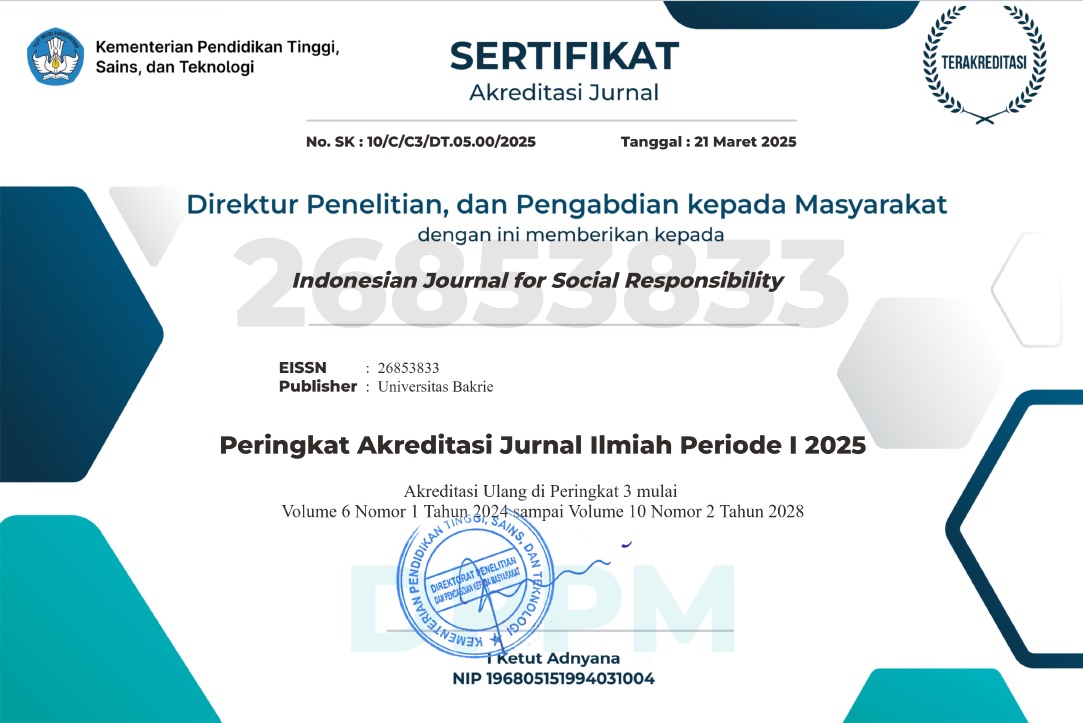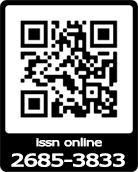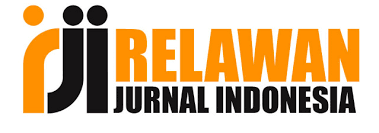Edukasi Self-Concept melalui Komunikasi Antarpribadi Antara Orang Tua dengan Anak Pada Kegiatan Pengabdian “Hayu Urang Ngobrol, Dak...”
DOI:
https://doi.org/10.36782/ijsr.v2i1.30Keywords:
interactive experience sharing, interpersonal communication, parenting education, self-concept, self-esteemAbstract
Being a parent is not an easy task, especially if parents do not have enough stock to educate children. One of parenting that is intended is wrong parenting, will make the process of growth and development in children both psychologically and mentally will form a negative self-concept, so that it will affect self-esteem, self-efficacy is also negative. The lack of parenting knowledge possessed by parents to educate their children is also one of the main obstacles in the process. The Community Service (PKM) activity this time was carried out in the village of Karya Mekar, Cariu District, Bogor Regency, where social environmental factors, economic status, and the wrong model of parenting were handed downd to their successors. Also, his parents educational background was only completed by junior high school (SMP), some elementary schools (SD) only, they ended by continuing to live by getting married at a young age of 22-35 years. The purpose of service activities is to provide an understanding of the role of interpersonal communication in the process of forming self-concepts. The method of implementation is carried out in the form of parenting education, which is packaged with interactive experience sharing, here will also involve students to interpret the material using local languages, so that participants can understand. The results of the activity show that participants understand the packaging of messages from the basic theory of communication 5W + 1H to do during the interaction of communication with their children. Furthermore, participants are provided with knowledge on how to create a conducive communication climate with children to create mutual respect by avoid destructive sentence that can have an impact on their self-concept, self-esteem, self-efficacy.
Downloads
References
Akbar, Zarina. (2017) Program Peningkatan Keterlibatan Orangtua Melalui Kegiatan Seni Pada Anak Usia Dini (Art Programs to Increase Parent Involvement in Early Childhood). Jurnal Pengabdian Kepada Masyarakat, 14(1), 53-60.
Akhyadi, Ade Sadikin & Mulyono, Dinno. (2018). Program Parenting Dalam Meningktakan Kualitas Pendidikan Keluarga (Program Pengabdian di Desa Karangpakuan Kecamatan Darmaraja Kabupaten Sumedang). Jurnal Pengabdian Kepada Masyarakat (Abdimas) IKIP Siliwangi, 1(1). 1-8.
Arumsari, C., Nurkamilah, M., Isti’adah, F.N. (2018). Pembinaan Parenting bagi Orang Tua Siswa di PAUD dan TK ASSAABIQ Singaparna Kabupaten Tasikmalaya. ABDIMAS UMTAS: Jurnal Pengabdian Kepada Masyarakat, 1(1). 14-22.
Aulina, C.N., Rezania V.D., Evi. (2018). Pengabdian Kepada Masyarakat Melalui Pendampingan Bagi Guru POS PAUD. Jurnal ABDI: Media Pengabdian Kepada Masyarakat, 3(2), 41-45.
Devito, Joseph A. (2013). Interpersonal Communication Thirteen Edition. New York: Pearson
Fahrudin, A & Baiq, N. (2018). Pelatihan Program Parenting untuk Meningkatkan Profesionalisme Guru PAUD Di Kota Mataram Tahun 2018. Jurnal Pengabdian Magister Pendidikan IPA 1(1). 37-44.
Hidayatullah, Achmad. (2017). Pendampingan Pendidikan Anak di Kelurahan Genteng Surabaya. Aksiyoga: Jurnal Pengabdian Masyarakat, 1(1), 45-51.
Khoiri, A. (2016, April 14). Sebagian Besar Anak Indonesia 'Salah Asuh'. CNN Indonesia. Diakses dari https://www.cnnindonesia.com/gaya-hidup/20160413202151-255-123787/sebagian-besar-anak-indonesia-salah-asuh
Puspitawati H. (2008). Pengaruh faktor keluarga, lingkungan teman dan sekolah terhadap kenakalan pelajar di Sekolah Lanjutan Tingkat Atas (SLTA) di Kota Bogor. Jurnal Ilmiah Pekerja Sosial, 7(2), 247-275.
Rahman, A.A. (2017). Psikologi Sosial (Integrasi Pengetahuan Wahyu dan Pengetahuan Empirik). Jakarta: Rajawali Pers.
Rakhmat, Jalaludin. (2018). Psikologi Komunikasi (Edisi Revisi). Bandung: PT. Remaja Rosdakarya.
Silalahi, K & Meinarno, E. A. (2010). Keluarga Indonesia: Aspek dan Dinamika Zaman. Jakarta: PT. Raja Grafindo Persada.
Sutherland, E. & Donald R. C. (1960). Principles of Criminology, Sixth Edition. Chicago: Jp Lipponscott Company.
Thalib, SB. (2010). Psikologi Pendidikan Berbasis Analisis Empiris Aplikatif. Jakarta: Kencana Prenada Media Grup.
Wardhani, Wahju Dyah Laksmi., (2016). Memperbaiki Keterampilan Komunikasi Dalam Program Parenting. Jurnal Pengabdian Masyarakat Ipteks. 2(2), 75-81.
Wiratri, Amorisa. (2018). Menilik Ulang Arti Keluarga pada Masyarakat Indonesia (Revisting The Concept of Family in Indonesian Society). Jurnal Kependudukan Indonesia, 13(1), 15-26.
Wood, Julia T., (2011) Communication Mosaics: An Introduction to The Field of Communication. Wadsworth Cengage Learning.















